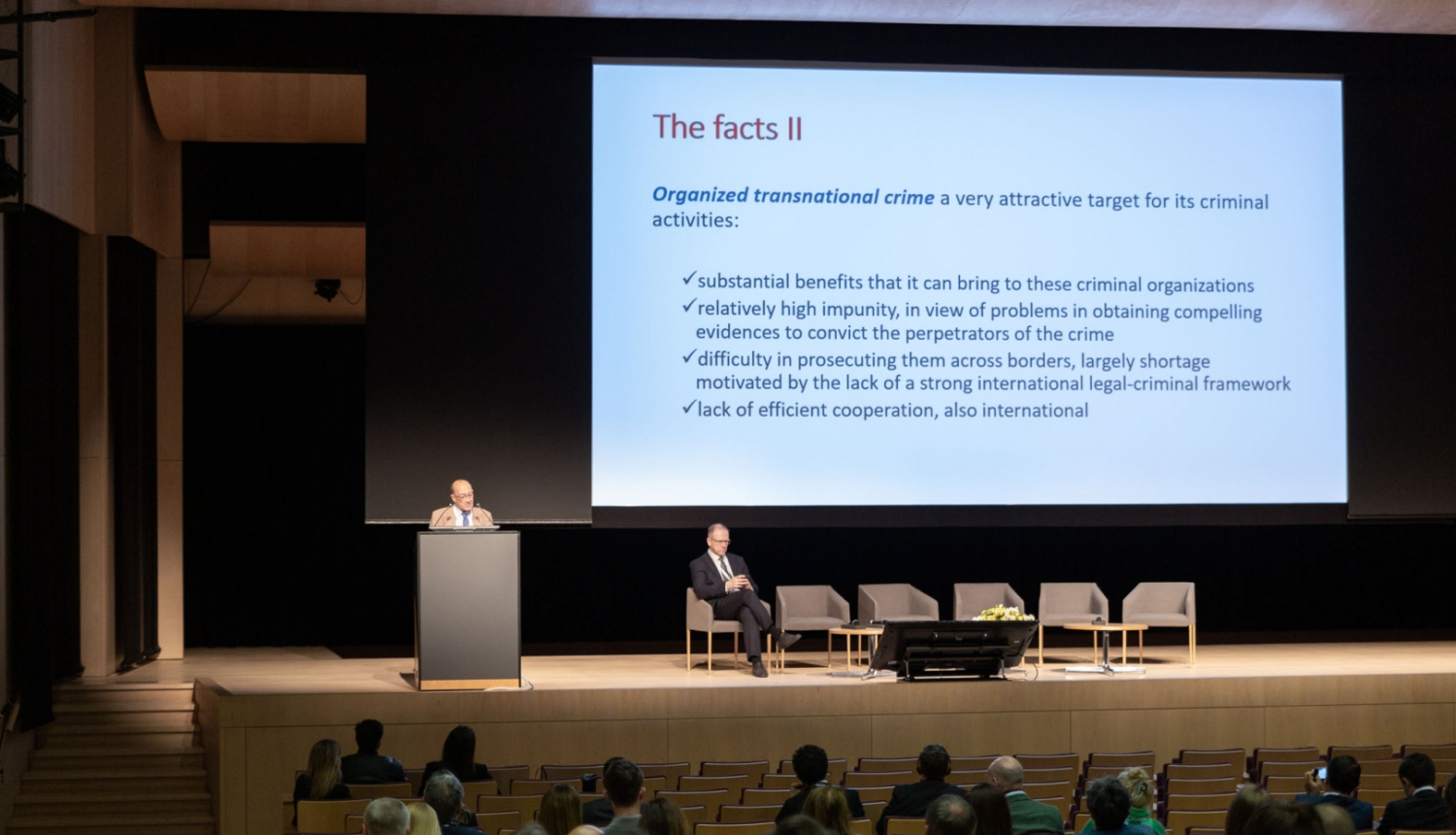A two-day international conference on "The Nicosia Convention: the criminal justice response to offences against cultural values" concluded on Friday, June 16. Experts in the field discussed and shared their countries' experiences on how to respond legally to crimes related to cultural values. The Conference particularly condemned Russia for its threat and deliberate destruction of both movable and immovable cultural heritage following the full-scale war in Ukraine.
Latvia's accession to the Nicosia Convention was crucial for its entry into force on 1 April last year, so the conference was organised under the Latvian Presidency of the Committee of Ministers of the Council of Europe with the aim of encouraging countries to join the common global goal of finding ever more effective solutions for the protection of cultural values.
In addition to existing international regulatory instruments, at the same time, the Nicosia Convention is the only international agreement that criminalises the destruction, damage of and illicit trafficking in cultural values.
The Nicosia Convention requires States to use criminal law instruments and international cooperation to prevent crimes involving the damage and destruction of cultural values. At the same time, the conference highlighted the need for countries to increasingly implement IT solutions in the fight against crime, which would allow for a more streamlined and efficient organisation of the process of solving criminal cases, both at national and international level. The conference also highlighted the change in public attitudes, which requires public involvement in the fight against cultural crime, participation in the care and use of cultural heritage, and understanding the possibilities offered by the legal framework.
Representatives of the Ministry of Culture of Ukraine also took part in the conference, providing up-to-date information on the crimes committed against cultural values by Russia – Russia's deliberate actions to destroy churches, museums, monuments and to remove thousands of cultural values from the territory of Ukraine. Opening the conference, Minister of Justice Inese Lībiņa-Egnere pointed out that democratic countries have a duty to hold Russia accountable for all the damage it has caused in Ukraine, including in the cultural sector. Other participants also expressed their condemnation of the crimes committed by Russia against cultural values in Ukraine.
During the conference, participants shared their countries' experiences in combating the damage, destruction, theft and trafficking of cultural values. For example, Latvian representatives at the conference revealed that the accession to the Nicosia Convention had improved the legal framework of the Criminal Code, introducing harsher penalties for offences against cultural values. The changes to the Criminal Code show that the changes to the legal framework have become an effective criminal justice tool, resulting in a reduction in this type of crime. Every year, fewer and fewer cases of damage to and destruction of cultural heritage sites are recorded in Latvia. While 16 cases were recorded in 2015, there were 7 cases in 2016, 3 cases in 2017 and 2 cases each in 2018 and 2019.
The members of the conference repeatedly pointed out that one way to reduce crimes against cultural values and to provide mutual international assistance is to accede to the Nicosia Convention, thus joining forces, gaining a powerful instrument and international cooperation to combat cultural crime. The conference invites countries to accede to the Nicosia Convention, which requires countries to fully implement the provisions of the Convention by adopting new rules or adapting existing rules. To date, 6 countries have joined the Nicosia Convention. During the conference, Ukraine expressed its readiness to accede to the Nicosia Convention.
The conference was organised by the Ministry of Justice, the Ministry of Culture, the European Committee on Crime Problems, the Committee on Culture, Heritage and Landscapes of the Council of Europe in the framework of the Latvian Presidency of the Committee of Ministers of the Council of Europe. Participants came from 28 countries and international organisations.
Photo author: Oskars Artūrs Upenieks/The Ministry of Culture



